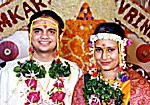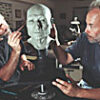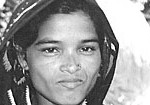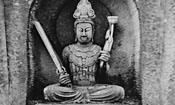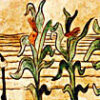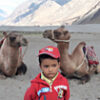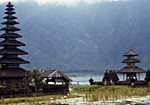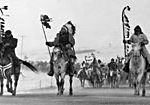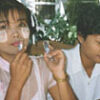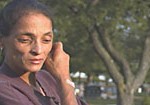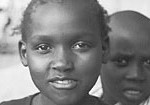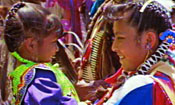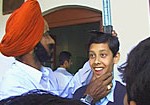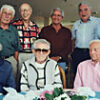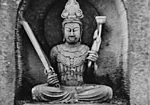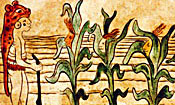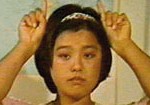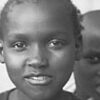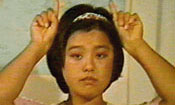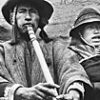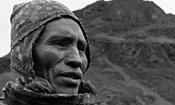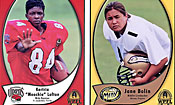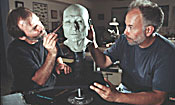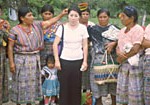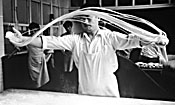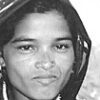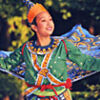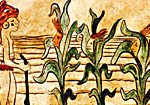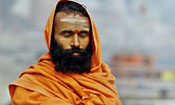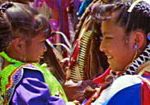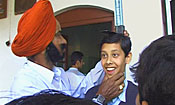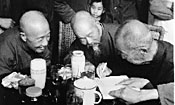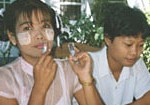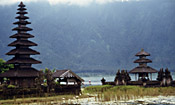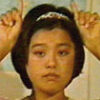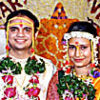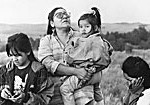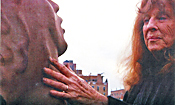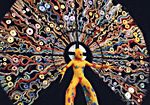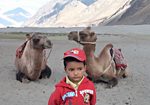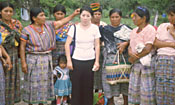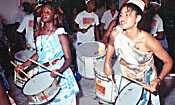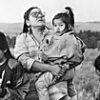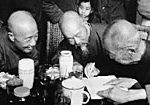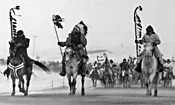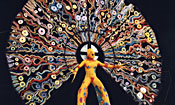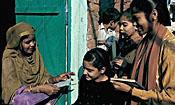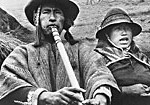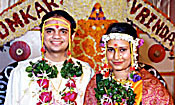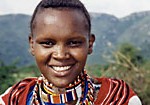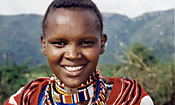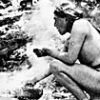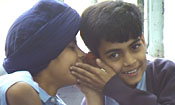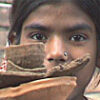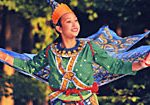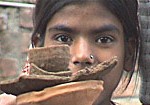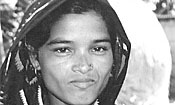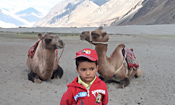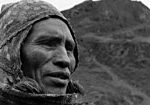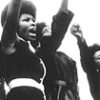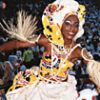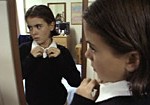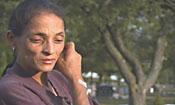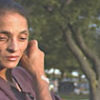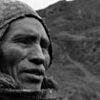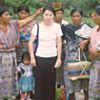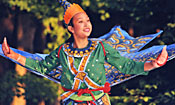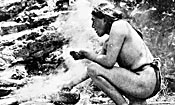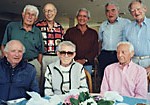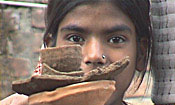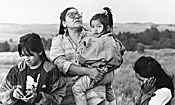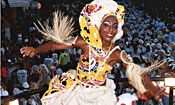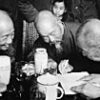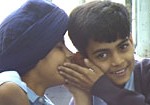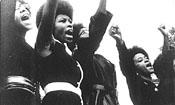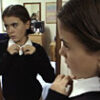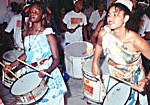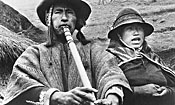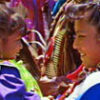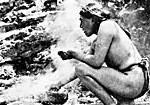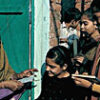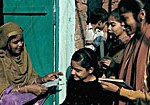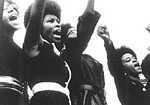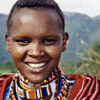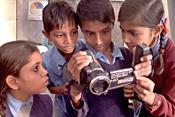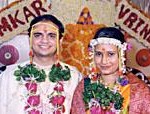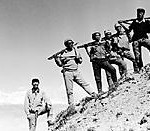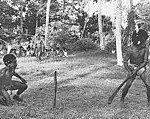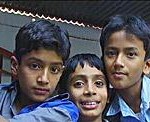Price: $195.00
This film presents the work of eight young filmmakers, all about eleven years old, in the village of Delwara in southern Rajasthan, India. Three films are included; one is a collaboration by all eight children and two are by individuals. The three films together provide an extraordinary view of contemporary Indian village life.
Product Description
This film presents the work of eight young filmmakers, all about eleven years old, in the village of Delwara in southern Rajasthan, India. The five boys and three girls took part in a video workshop at their local government primary school.
The three films they made consist of one made jointly by all the children in the group, exploring the life of their village, and two films made by individual children. The first of these is about the family of a girl, Kiran, who herd goats as part of their livelihood. The film focuses closely on Kiran’s relationship with her grandparents. The second individual film is by Mayank, a boy whose father is one of the barbers in the village. It provides an affectionate portrait of his father as well as giving insights into the day-to-day home life of his family.
The workshop was coordinated by renowned ethnographic filmmaker David MacDougall as part of the “Childhood and Modernity” Project, supported by The Australian National University and the Australian Research Council. The Delwara workshop was made possible by the assistance and cooperation of the Delwara Upper Primary School and Seva Mandir, a non-government organization providing assistance to communities throughout southern Rajasthan. The films are in Mewari, with English subtitles.
The three films are as follows:
Our Delwara (19 min.)
This film, made collectively by all eight village schoolchildren, presents a wide-ranging view of village activities, from the children’s various viewpoints. Most of the activities are domestic — clothes washing, food preparation, cooking, tending animals — but there are also glimpses of the kinds of economic work that occur in village homes, such as embroidery and pottery-making. There are also more public economic activities such as scenes in a barber shop and a shoe-repair business.
An interest in childhood activities is evident, including games and school homework, but the forces of modernity that are changing village life are also represented: new building construction and the vaccination of babies by public health workers. The film ends with signs of the religious diversity of the village. With admirable economy, this film presents an intimate view of the realities of Indian village life today.
Our Life with Goats by Kiran Khartik (12 min.)
Kiran begins with scenes inside her own house, but she soon moves outdoors to focus on the goats, who are an important part of her family’s livelihood. Her grandfather and grandmother have a major role in taking care of the goats, and one can see in the way she films them that she has a close relationship with them both. In a key scene she films a conversation with her grandmother who, although wary of modern technology, is nevertheless curious about Kiran’s filmmaking activities.
The film is notable for a scene in which Kiran’s grandfather drives their small herd of goats through the village, down narrow lanes, past a group of card players, and into their enclosure. The film is made with affection, understanding, and moments of quiet humor — a view of village life as only a young girl could see it.
Mayank’s Family by Mayank Ved (18 min.)
This intimate and engaging film began as a portrait of Mayank’s father, a village barber, but soon expanded to include the rest of his family and wider scenes of village life. His father’s day begins in the early morning as he eats breakfast, dresses, and performs puja to a Hindu god at the family altar. He opens his barber shop beside a busy market and a highway that links the village of Delwara with the other villages and towns of Rajasthan. As the day progresses, he chats with clients and gives haircuts, shaves, and head massages.
Meanwhile at home Mayank’s mother and other relatives carry on the work of the household. The film contains remarkably informal and playful scenes of family life, usually involving Mayank’s younger brother. The film ends with his brother at the barber shop, having his hair cut by his father. Mayank has succeeded in giving a well-rounded view of what daily existence is like for an Indian family who have limited resources but who live a life of dignity, cooperation, and happiness.


